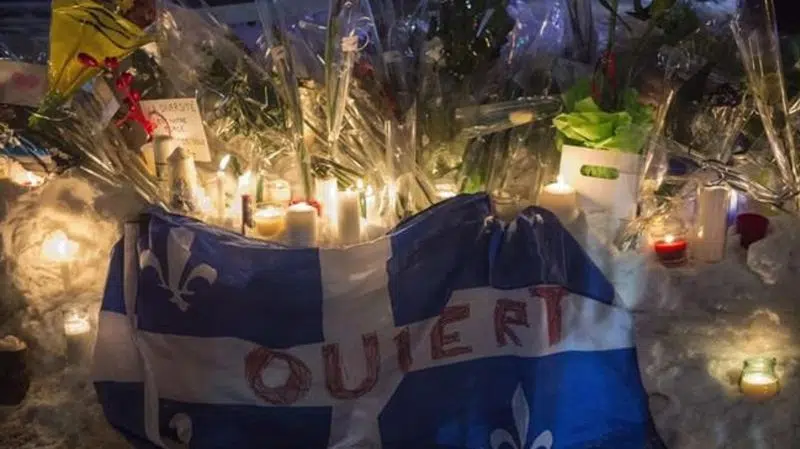
Quebec City remembers 2017 mosque attack with emotional ceremony
QUEBEC — A Muslim Quebecois rapper addressed the solemn crowd gathered Wednesday night to commemorate the third anniversary of the Quebec City mosque attack, and his words reflected the inherent politics of the tragedy and its aftermath.
In front of survivors, politicians, gun control activists and city residents, the artist and historian — who goes by the name Webster — said Quebec society is still afraid to face its Islamophobia three years after a gunman shot dead six men in a mosque on Jan. 29, 2017.
“Don’t tell me that this commemoration tonight isn’t political — because it is, especially now,” he told the crowd gathered at St-Mathieu Church.
Earlier, the Quebec Islamic Cultural Centre — where the killings occurred — opened its doors to the community. Hours later, at the church a few blocks away, Premier Francois Legault and other politicians spoke about the need for all Quebecers to come together against hatred. The event’s organizers said 300 free tickets for the event had been reserved in just over 24 hours.
